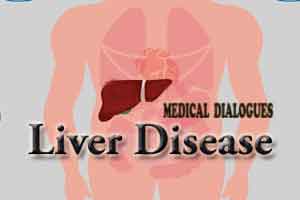- Home
- Editorial
- News
- Practice Guidelines
- Anesthesiology Guidelines
- Cancer Guidelines
- Cardiac Sciences Guidelines
- Critical Care Guidelines
- Dentistry Guidelines
- Dermatology Guidelines
- Diabetes and Endo Guidelines
- Diagnostics Guidelines
- ENT Guidelines
- Featured Practice Guidelines
- Gastroenterology Guidelines
- Geriatrics Guidelines
- Medicine Guidelines
- Nephrology Guidelines
- Neurosciences Guidelines
- Obs and Gynae Guidelines
- Ophthalmology Guidelines
- Orthopaedics Guidelines
- Paediatrics Guidelines
- Psychiatry Guidelines
- Pulmonology Guidelines
- Radiology Guidelines
- Surgery Guidelines
- Urology Guidelines
Researchers update understanding of damaging liver disease

An article published in the New England Journal of Medicine updates the medical community on a potentially devastating liver disease that afflicts approximately 29,000 Americans. Primary sclerosing cholangitis, or PSC, is a condition that damages the ducts that carry digestive bile from the liver to the small intestine. Many individuals affected by this disease eventually require a liver transplant for continued survival.
In the article, Konstantinos Lazaridis, M.D., and Nicholas LaRusso, M.D., of Mayo Clinic’s No. 1-ranked Division of Gastroenterology and Hepatology highlight research of the clinical features of PSC, which has recently increased in case numbers. Dr. LaRusso published the first case series on PSC in the 1980s, and Mayo Clinic has become a major referral center for patients with PSC and a world leader in basic research on the disease.
About 60 percent of individuals affected by PSC are males, and the median age of those with the condition is 41. The article reports that there are currently no effective medical therapies proven to treat this condition, which may trigger biliary inflammation and fibrosis in affected individuals. However, improved diagnostic techniques have allowed for increased detection of the PSC.
“These increasing numbers don’t necessarily signify more individuals having the disease,” says Dr. Lazaridis. “Increased awareness of PSC in the medical community and improved noninvasive methods of detecting this disease may have increased the number of patients.”
Endoscopic retrograde cholangiopancreatography and magnetic resonance cholangiopancreatography are two of the diagnostic techniques that have helped detect the disease, according to the article. PSC is otherwise difficult to detect, with half of affected individuals not having symptoms until they receive abnormal results from liver function tests.
Coexisting conditions in individuals with PSC include inflammatory bowel disease and gallbladder diseases, including gallstones, polyps and cancer.
“Because of the complexity of PSC and its associated conditions, caring for these patients can be challenging,” says Dr. Lazaridis. “Specialized centers with multidisciplinary expertise and integrated care delivery are necessary for proper treatment of these complex patients.”
At Mayo Clinic, teams of physicians and scientists work side by side to transform research into critical advances in patient care. Drs. Lazaridis and LaRusso say that collaboration is essential for translating scientific discoveries into breakthrough therapies to address the unmet needs of patients with PSC.
The article reports that the study of several new treatments, including monoclonal antibodies and synthetic bile acids, are in the works. In the meantime, the progressive nature of PSC, which has been the cause of about 6 percent of all liver transplants over the past 27 years, will leave nearly 40 percent of affected individuals in need of a transplant.
You can read the full article by clicking on the following link :
Konstantinos N. Lazaridis, Nicholas F. LaRusso. Primary Sclerosing Cholangitis. New England Journal of Medicine, 2016; 375 (12): 1161 DOI: 10.1056/NEJMra1506330

Disclaimer: This site is primarily intended for healthcare professionals. Any content/information on this website does not replace the advice of medical and/or health professionals and should not be construed as medical/diagnostic advice/endorsement or prescription. Use of this site is subject to our terms of use, privacy policy, advertisement policy. © 2020 Minerva Medical Treatment Pvt Ltd